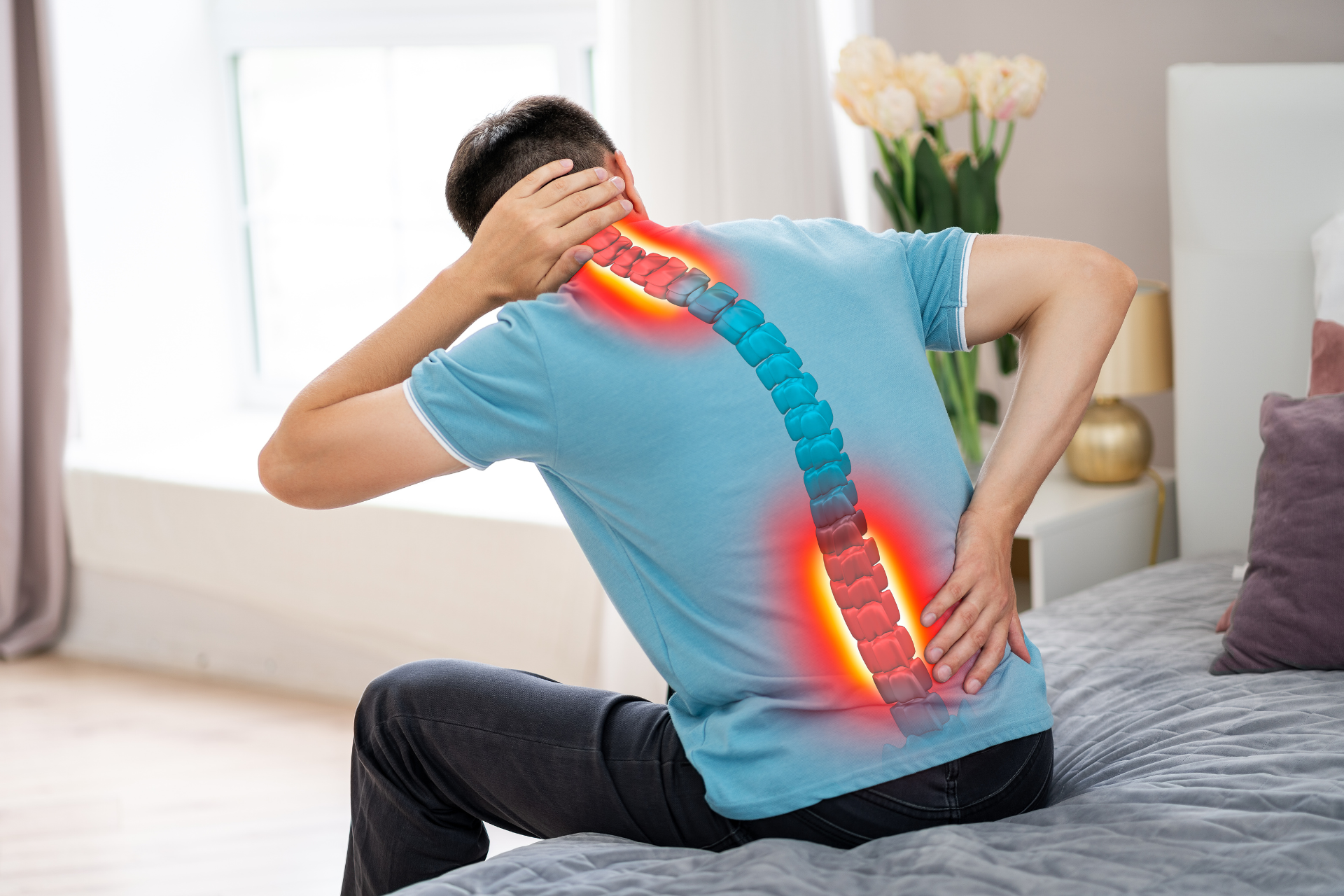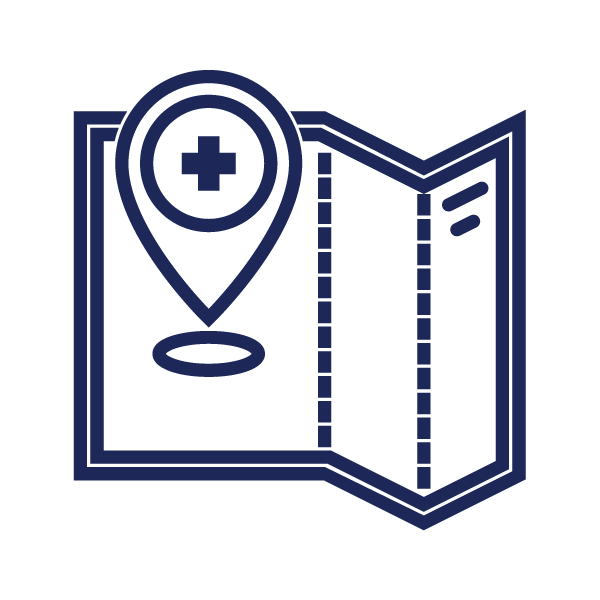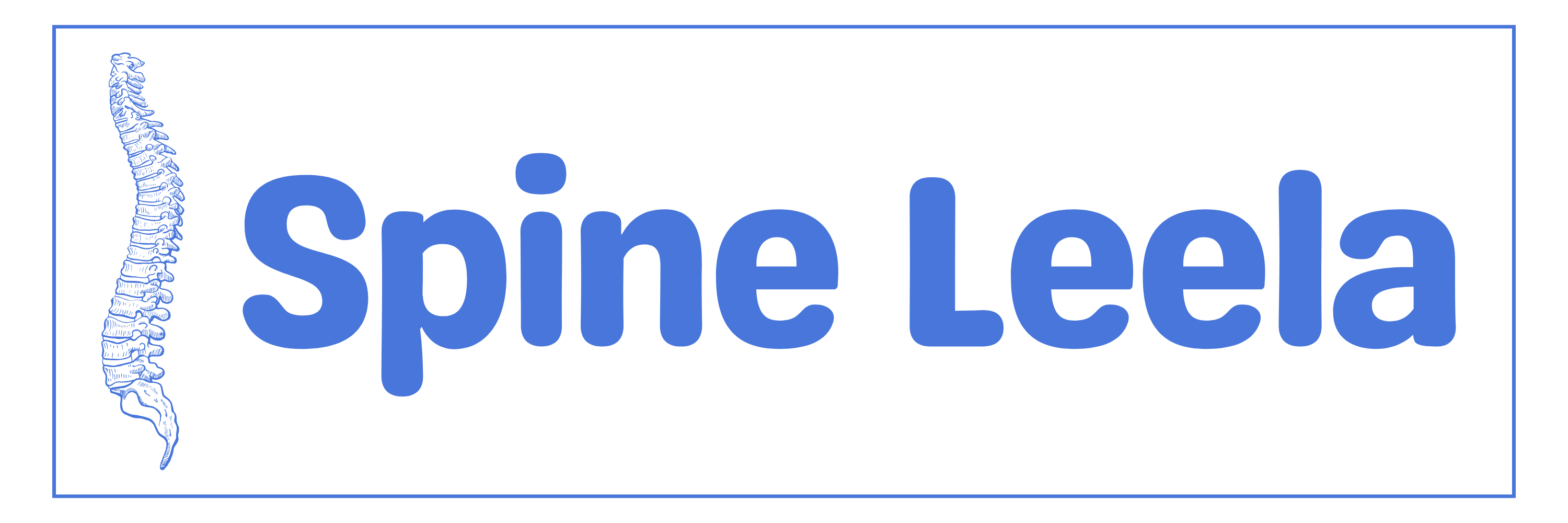- 14-1-3/1, Nowroji Rd, Opp More Supermarket, Visakhapatnam
- spineleela@gmail.com
- +91 95739 17693

Sciatica and Related Problems
Relieving Pain, Restoring Mobility
Sciatica and related problems arise when there’s irritation or compression of the sciatic nerve, which originates in the lower back and travels down both legs. Intense pain, numbness, and weakness may ensue, turning your life into a nightmare. But some treatments work to get you moving again with little pain. This will allow you to heal more quickly and get back to the things you love to do. Fortunately, with advanced diagnostics and targeted care, Sciatica Treatment in Vizag is now more effective than ever.
At our center, under the expert guidance of Dr. Leela Prasad – a leading sciatica specialist in Vizag, we create personalized treatment plans aimed at reducing pain, restoring mobility, and enhancing your overall spine health.
What Causes Sciatica Pain?
The sciatic nerve can become compressed or inflamed, leading to sciatica. Common causes of sciatica include:
- Herniated Discs: The sciatic nerve can be compressed and painfully compressed when a spinal disc bulges or slips.
- Spinal Stenosis: Sciatica can develop when the spinal canal becomes too narrow and presses on nerves.
- Piriformis Syndrome: Tightness or spasms in the piriformis muscle can irritate the sciatic nerve.
- Spondylolisthesis:The sciatic nerve is vulnerable to compression from a misaligned vertebra.
- Injury or Trauma: Falls or accidents can damage the lower spine and sciatic nerve.
Symptoms of Sciatica
Sciatica typically affects one side of the body and presents with symptoms such as:
- Sharp or burning pain radiating from the lower back to the leg.
- Tingling or numbness in the leg or foot.
- Weakness in the affected leg or foot.
- Worsening pain with prolonged sitting, standing, or certain movements.
Diagnosing Sciatica
A thorough evaluation is essential to determine the cause of sciatica. Diagnosis involves:
- Medical History: Understanding symptoms, activity level, and previous injuries.
- Physical Examination: Assessing mobility, reflexes, and areas of pain or numbness.
- Imaging Tests: X-rays, MRIs, or CT scans to identify nerve compression or spinal issues.
- Nerve Conduction Studies: Nerve conduction studies and electromyography (EMG) help assess the health and function of your sciatic nerve, ensuring accurate diagnosis and effective nerve pain relief in Visakhapatnam.
Treatment Options for Sciatica
Effective management of sciatica focuses on alleviating pain and addressing the underlying cause. Options include:
Non-Surgical Treatments
- Medications: Anti-inflammatory drugs, muscle relaxants, or pain relievers.
- Physical Therapy: Strengthening and stretching exercises to improve mobility and reduce nerve pressure.
- Epidural Steroid Injections: Targeted relief to reduce inflammation and pain.
- Lifestyle Modifications: Ergonomic adjustments and activity changes to prevent recurrence.
Surgical Treatments
For severe or persistent cases, surgery may be recommended to relieve nerve compression:
- Microdiscectomy: Removing herniated disc material pressing on the sciatic nerve.
- Laminectomy: Enlarging the spinal canal to relieve pressure.
- Spinal Fusion: Stabilizing the spine in cases of instability or spondylolisthesis.
Preventing Sciatica and Related Problems
Taking proactive steps can reduce your risk of developing sciatica:
Maintain Good Posture: Avoid putting undue strain on your spine by maintaining correct posture when sitting, standing, and walking.
Get Regular Exercise: To maintain healthy spines, it is recommended to perform strengthening activities, focusing on the abdominal and lower back muscles in particular.
Properly lift: To avoid back pain, raise heavy objects with your legs instead of your back.
Regular Stretching: To increase range of motion and decrease stiffness in the lower extremities, hips, and back, stretch regularly.
Keep Off the Extra Pounds: The lower back and sciatica are both made worse by carrying around extra weight.
Avoid Extended Sitting: To relieve strain on the back and nerves, get up and move around every so often if you have to sit for long amounts of time.
Why Choose Us for Sciatica and Related Problems?
Expert Care by Dr. Leela Prasad: As a renowned sciatica specialist in Vizag, Dr. Leela Prasad brings years of experience in diagnosing and treating complex spinal and nerve issues.
Customised Treatments: We tailor each treatment based on your condition — from conservative therapies to minimally invasive procedures.
Cutting-Edge Technologies: We offer precise diagnoses and treat the source of your sciatica using cutting-edge diagnostic and treatment procedures so you can get better faster.
Comprehensive Pain Management: Whether it’s physical therapy, medication, or surgery, we cover every angle of sciatica treatment in Vizag to ensure long-term relief.
Approach with Compassion: In order to provide you with kind, person-centred care that prioritises your health, we listen carefully to your concerns.
Proven Results: Our success stories speak for themselves — we’ve helped countless patients regain control of their lives with effective nerve pain relief in Visakhapatnam.
Take Charge of Your Spine Health
Sciatica doesn’t have to limit your life. With the right treatment and care, you can find relief and regain your mobility. If you’re experiencing symptoms of sciatica, seek professional evaluation and personalized solutions tailored to your needs.
Let your path to recovery begin today.
Other Services
Want to consult about health? contact us
Your journey to optimal spinal health is just a call away—take the first step today!
Get in Touch
Get in touch with us today to start your journey toward better health and well-being—our experts are here to guide you every step of the way!

Contact Number
- +91 95739 17693

Hospital Location
- Open In 24 Hours
- 14-1-3/1, Nowroji Rd, Opp More Supermarket, Visakhapatnam

Email Us at
- spineleela@gmail.com

Dr. B. Leela Prasad is one of the country’s most renowned orthopedic doctors, with over 15 years of experience in the field. After earning his medical degree from Andhra Medical College, Visakhapatnam, he pursued post-graduation in Orthopedics at Guntur Medical College.
Visit Us at
- Amulya Hospital
- 14-1-3/1, Nowroji Rd, Opp More Supermarket, Visakhapatnam
- spineleela@gmail.com
- +91 95739 17693
- Hyma Nursing Home
- Main Road, Marripalem, Visakhapatnam-18
- HYMA Nursing : 07:30PM - 09:30 PM
- Copyright 2025 © All Right Reserved Dr. B Leela Prasad
